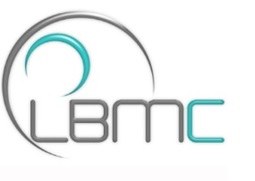Janvier 2022
|
Lundi 10/01/2022 Visio Séminaire Externe |
" Dynamic evolution of great ape Y chromosomes " | |
|
|
Kateryna MAKOVA (Penn State University)
host Frédéric Brunet
The mammalian male-specific Y chromosome plays a critical role in sex determination and male fertility. However, because of its repetitive and haploid nature, it is frequently absent from genome assemblies and remains enigmatic. The Y chromosomes of great apes represent a particular puzzle: their gene content is more similar between human and gorilla than between human and chimpanzee, even though human and chimpanzee shared a more recent common ancestor. To solve this puzzle, here we constructed a dataset including Ys from all extant great ape genera. We generated assemblies of bonobo and orangutan Ys, from short and long sequencing reads, and aligned them with the publicly available human, chimpanzee and gorilla Y assemblies. Analyzing this dataset, we found that the genus Pan, including chimpanzee and bonobo, experienced accelerated substitution rates. Additionally, Pan also exhibited elevated gene death rates. These observations are consistent with high levels of sperm competition in Pan. Furthermore, we inferred that the great ape common ancestor already possessed multi-copy sequences homologous to most human and chimpanzee palindromes. Nonetheless, each species also acquired distinct ampliconic sequences. We also detected increased chromatin contacts between and within palindromes (from Hi-C data), likely facilitating gene conversion and structural rearrangements. Our results highlight the dynamic mode of Y chromosome evolution, and open avenues for studies of male-specific dispersal in endangered great ape species. At the end of the seminar, I will outline the preliminary results originating from our collaborations with the Telomere to Telomere (T2T) project and the Vertebrate Genome Project (VGP). lien zoom: https://cnrs.zoom.us/j/96727793954?pwd=RlhHVWZGUDg4ditLRW1XYnFoSFhpdz09ID: 967 2779 3954 Password: UFdC6T |
|
|
Lundi 10/01/2022 Visio Séminaire Externe
|
“ The eIF2α kinase HRI in innate immunity, proteostasis, and mitochondrial stress “ | |
|
|
Dr. Damien ARNOULT (Head of the "Organelles, ubiquitinylation and signaling" group within the INSERM U1197 unit at the Paul Brousse hospital in Villejuif)
Hote : Marlène Dreux
The integrated stress response (ISR) is an evolutionary conserved stress response pathway that leads to a global arrest in translation as well as to the expression of specific genes, such as the transcription factor ATF4, to promote cellular recovery. The central nexus of this pathway is the phosphorylation of the alpha subunit of eukaryotic translation initiation factor 2 (eIF2α) by one of the four eIF2α kinases that sense specific cellular stressors. The heme-regulated inhibitor (HRI) is one of these kinases, and it was initially reported to be activated in response to heme deprivation. Nevertheless, further studies have established that cytosolic proteotoxicity, resulting from oxidative or osmotic stress, heat shock, and proteasome inhibition, is the predominant trigger for HRI to induce the ISR. I will present newly identified functions of HRI in innate immunity, proteostasis, and mitochondrial stress. Indeed, HRI-mediated signaling defines a novel cytosolic unfolded protein response (cUPR) required for the proper formation of some innate immune signalosomes and the control of toxic protein aggregates, and this eIF2α kinase also serves as a relay for mitonuclear communication after a mitochondrial stress.
|
|
|
Vendredi 14/01/2022 Visio Séminaire Externe |
||
 |
Marco DI STEFANO (Institute of Human Genetics, Montpellier)
Contact :Daniel Jost
|
|
|
Jeudi 06/01/2022 SDT CRC & Visio Séminaire Externe: pass sanitaire recquis |
« Mitochondrial manipulations by flaviviruses » // REPORTE // | |
 |
Pr. Laurent CHATEL-CHAIX (Institut national de la recherche scientifique, Centre Armand-Frappier Santé Biotechnologie Laval, Québec - Canada) Hote : Pierre-Yves Lozach & François-Loïc Cosset With no available therapies, infections with flaviviruses constitute a major public health concern worldwide. While dengue virus (DENV) causes the most prevalent arthropod-borne viral disease and may be fatal, Zika virus (ZIKV) infection in utero can lead to severe neurodevelopmental defects in newborns, including congenital microcephaly. In Canada, West Nile virus is endemic and causes severe encephalitis and eventually death. Thus there is an urgent need to better understand flavivirus pathogenesis at the molecular level in order to identify novel antiviral targets. |
|



